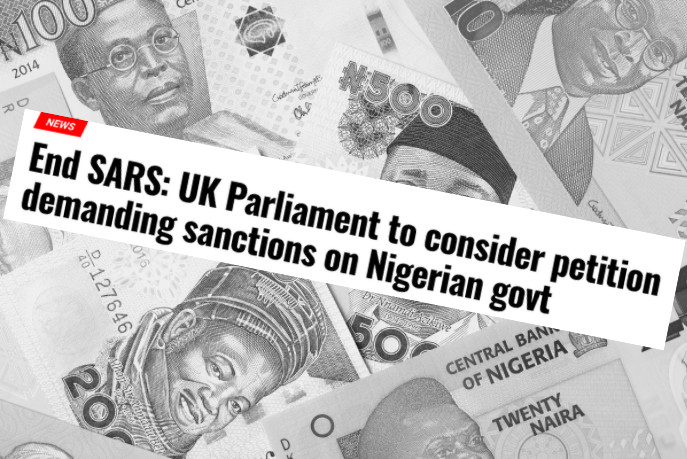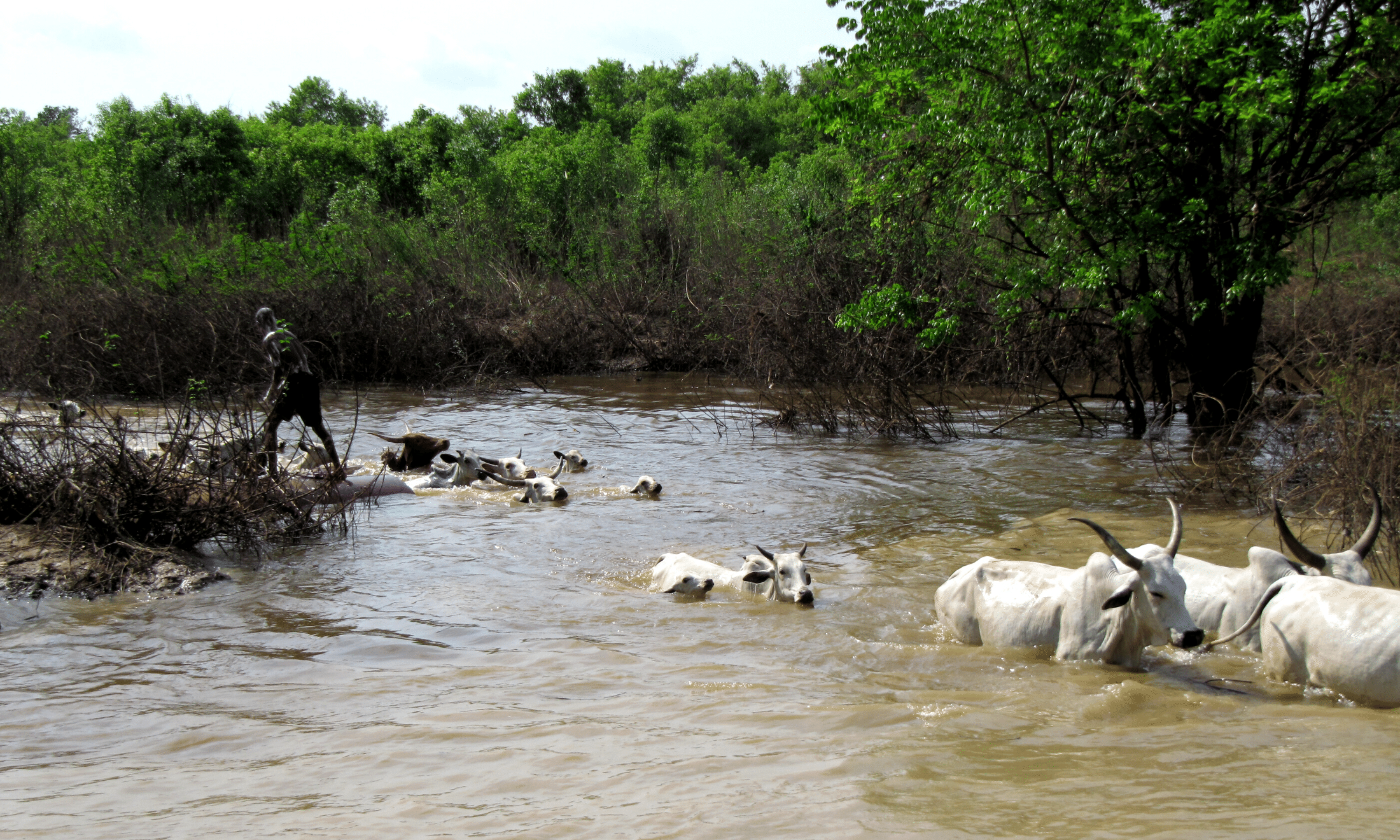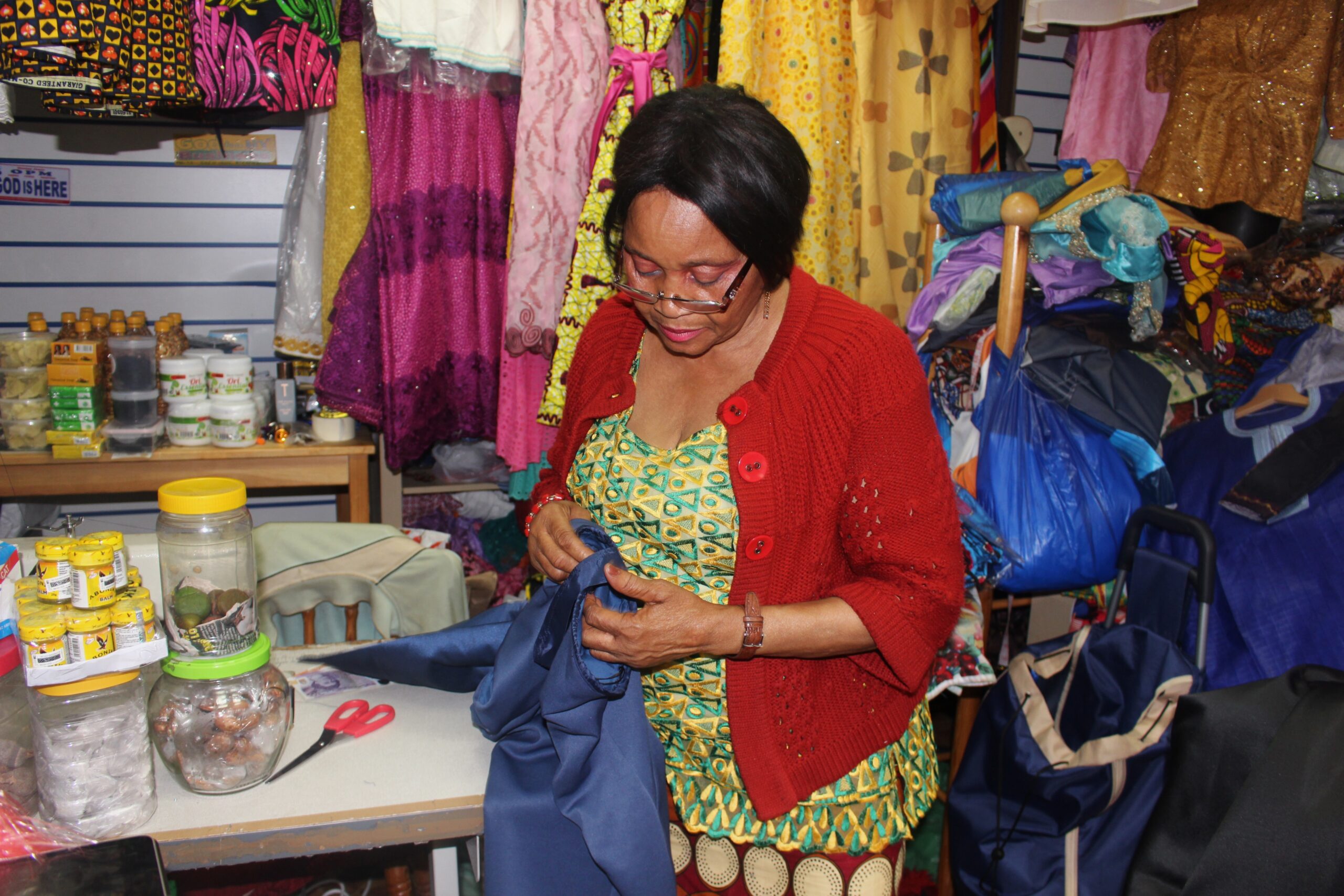
Sanctions destroy lives, so stop asking the West to intervene in Nigeria
Western intervention is not the answer.
Fopé Ajanaku
22 Oct 2020
Photography via Canva
When the smoke has barely cleared in the aftermath of violence and bloodshed in the far reaches of the Global South, the same calls always ring out: where are the UK and US? Where is the international condemnation?
We ask these questions over and over again because we simply don’t know what else to do but it’s sad how predictable these sanitised modes of resistance have become and the alarming traction a petition asking the UK to sanction the Nigerian government has gained. At the time of writing, it has over 200,000 signatures, which means MPs will consider debating it in parliament.
It’s as if we have never been here before and have never seen the consequences. Good intentions mean very little when we refuse to treat history as the lesson it has always been and I worry about these calls imploring Western governments to intervene. Amidst years marred by police brutality and protests, not to mention a whole history soaked in the blood of our home nations, what exactly are you asking these states to do for Nigeria?
On Tuesday night, President Muhammadu Buhari and Lagos state Governor Babajide Sanwo-Olu allowed Nigerian military to open fire at unarmed protestors at the Lekki toll gate. Over social media, the numbers of our dead have piled up, but yesterday morning the governor brazenly admitted to only one death, lying in the face of the screams we all heard over Instagram live. This comes after weeks of protests against the Special Anti-Robbery Squad (SARS) which was introduced in 1992 and has a long-documented history of extrajudicial killings and torture. A recent Amnesty International report “reveals a pattern of abuse by SARS officers and the consistent failure by the Nigerian authorities to bring the perpetrators to justice”. The Lekki Massacre has sent a shockwave throughout the diaspora leaving us reeling for help in any way we can.
“Good intentions mean very little when we refuse to treat history as the lesson it has always been”
Sanctions, however, are not the answer. They are a tool of state policy, and narratives pushed that suggest sanctions are a “force of good” that “punish” rogue regimes, are wrong. Often they are tools of what political commentator Nima Shiraz calls “economic warfare”. UN-imposed sanctions in Venezuela, Cuba, North Korea, Iraq and far too many other countries have resulted in economic destabilisation and vulnerability to US militarism. As they indiscriminately target import and export sectors, they can also lead to starvation, illness and mass deaths. If that wasn’t enough, they are rarely effective in achieving their desired goal – targeted sanctions are at most “effective” 22% of the time.
In the US, trade sanctions against Japan in 1940-41 were partly responsible for the attack on Pearl Harbour. In contemporary history, the international community has long imposed economic sanctions in Sudan and Zimbabwe in an attempt to address the horrific human rights violations in both countries. This isn’t surprising as economic sanctions are often the default course of action for policymakers whenever a crisis erupts in Africa.
Reports have found that while it can be argued some of these sanctions may have had tangible effects, it is still clear all of the sanction’s programs suffered from “poor conceptualisation, coordination, implementation, and enforcement”. And in the case of Sudan, despite these sanctions being repealed in 2017, we can clearly see how the Sudanese people have needlessly suffered from these policies and are on the verge of humanitarian and economic collapse.
There is hope that targeted sanctions or “smart sanctions”, which are intended to be directed at individuals, companies and organizations or restrict trade with key commodities, bypass these criticisms. We saw this in the case of Saudi Arabia, after Jamal Khashoggi’s brutal murder in 2018. The sanctions focused solely on the 17 Saudi nationals believed to be involved. However, these proposals still carry concerns as they similarly have a low success rate and are mainly imposed after assassinations rather than human rights abuses. They are also often more attractive, and used as a punishment that won’t upset a strategic ally. Notably the Saudi Crown Prince was absent from these sanctions, despite being suspected of ordering the hit.
“Sanctions can lead to economic destabilisation, vulnerability to US militarism, starvation, illness and mass deaths”
How can we ask for help from the international community when there is yet to be sufficient clarification on whether UK development funding – especially regarding the controversial Conflict, Stability and Security Fund project in Nigeria – has made its way into the pockets of the very people Nigerians are protesting against? How can we even ask the UK for condemnation when they constantly give visas to wealthy leaders who “flee” their countries “simply for a holiday”?
Nigeria did not reach this point on her own, how can she have? Sixty years young and independence can hardly mean anything after violent colonisation pitted its people against each other for generations. Introduced in 1946, the Richards Constitution gave the North autonomy over the South, suppressing Southern political agitators and thus laying the foundations for Nigerian political tribalism. It showed us how easy it is for a people to turn their back on the poorer class for access to power and authority. Buhari is not a singular case, but simply another name in the long line of leaders funded by Western states who are more interested in being glorified travel vloggers than running a government their people need.
We cannot be blind to our siblings in the diaspora who have suffered the consequences of the imperialism we are begging for. It is bleak, but it is true. Decades of whitewashed foreign policy have left the false impression that Western interventions can still save us. The solutions we are looking for need to be bigger than petitions, and more sustainable than western intervention. As the toll gate still burns, remember that grassroots organisations on the ground like the volunteer End SARS Response Unit, Feminist Coalition, Kokun Foundation, Assata Collective and The Reach Nigeria, have always been the backbone of revolutions. Do not forget.

Britain’s policing was built on racism. Abolition is unavoidable

How Pakistan’s Khwaja Sira and transgender communities are fearing and fighting for their futures

Their anti-rape performance went viral globally. Now what?






